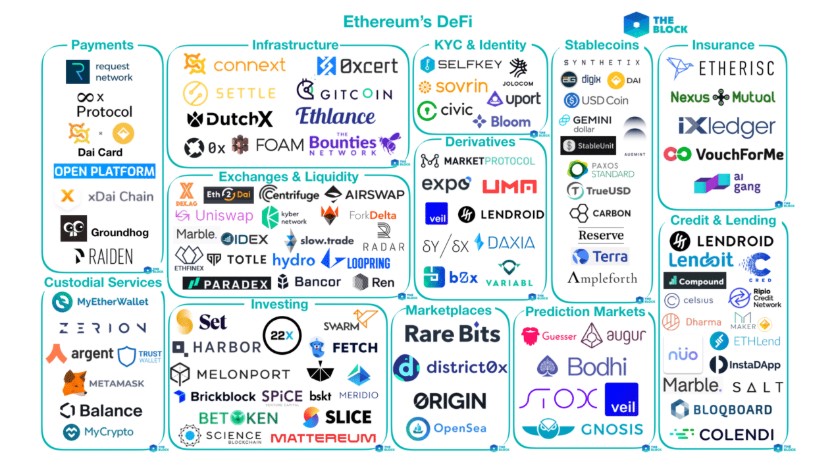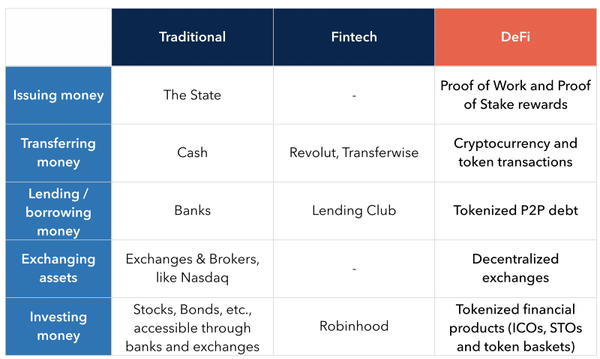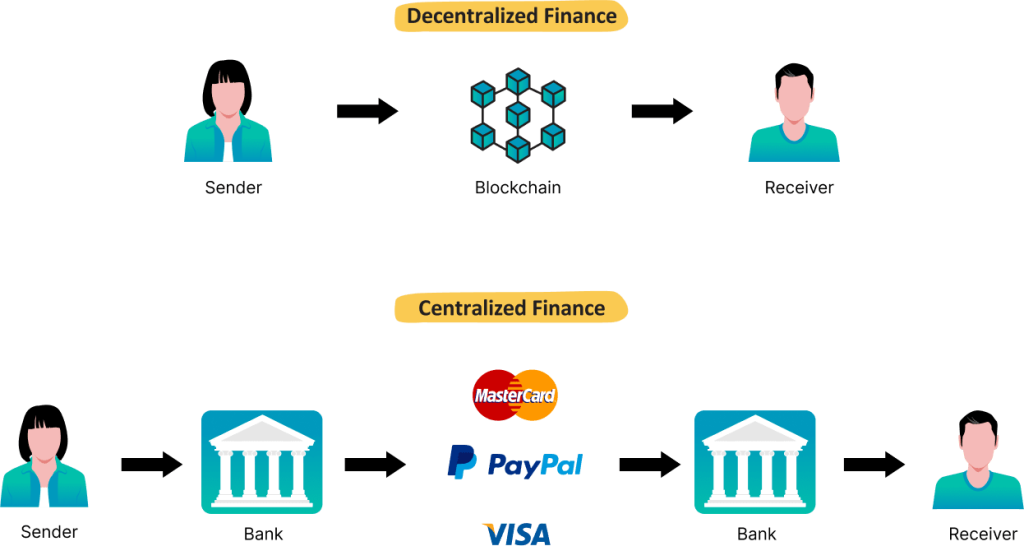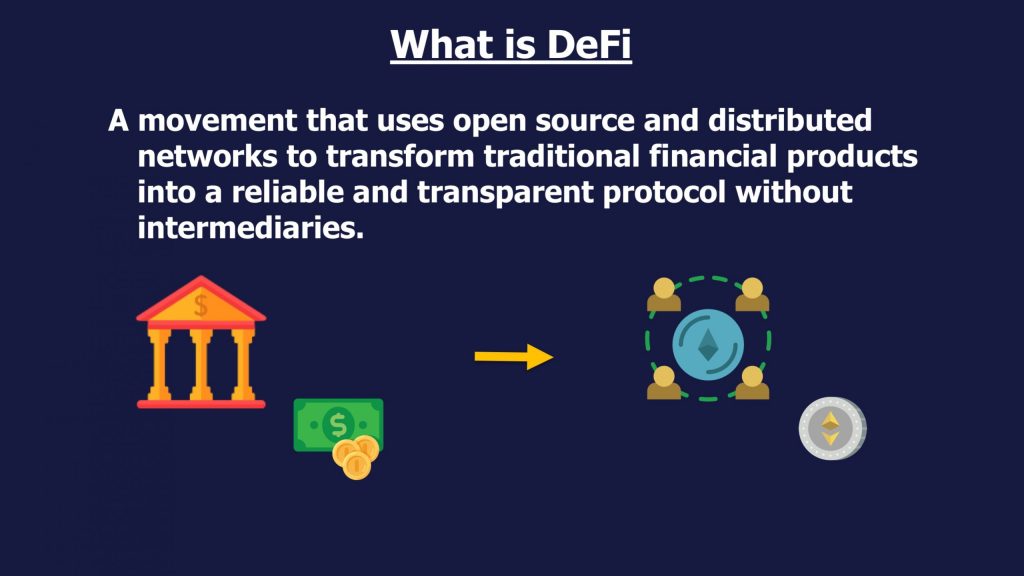
DeFi (Decentralized Finance) is a term used to describe financial applications and services built on top of blockchain technology. It represents a new financial system that is decentralized, meaning it operates without the need for intermediaries such as banks or other financial institutions.
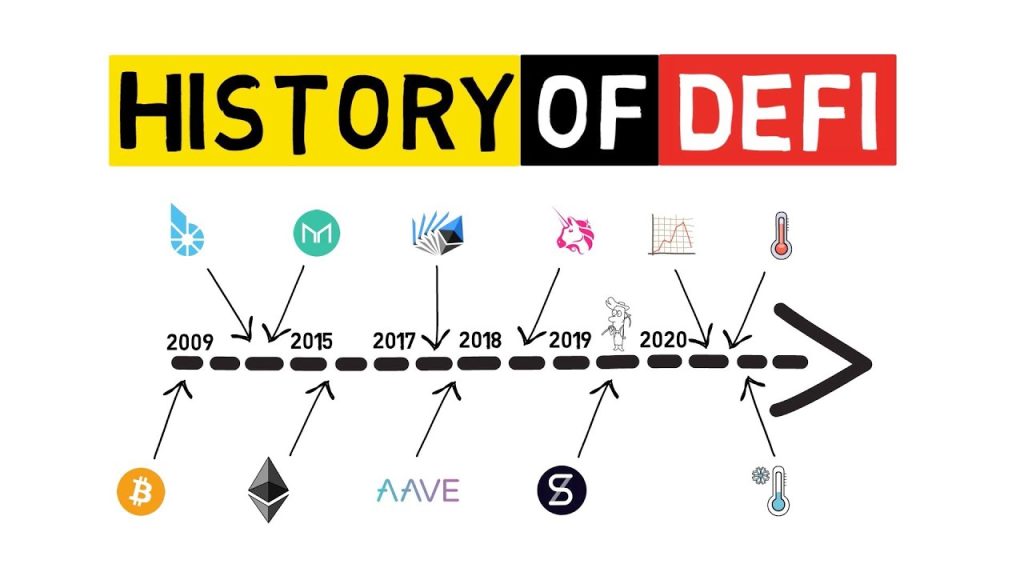
DeFi applications allow users to access a range of financial services, such as lending, borrowing, savings, insurance, and payments, using cryptocurrencies and blockchain technology. These applications are built on decentralized platforms, such as Ethereum, and are accessible to anyone with an internet connection, regardless of their location or financial background.
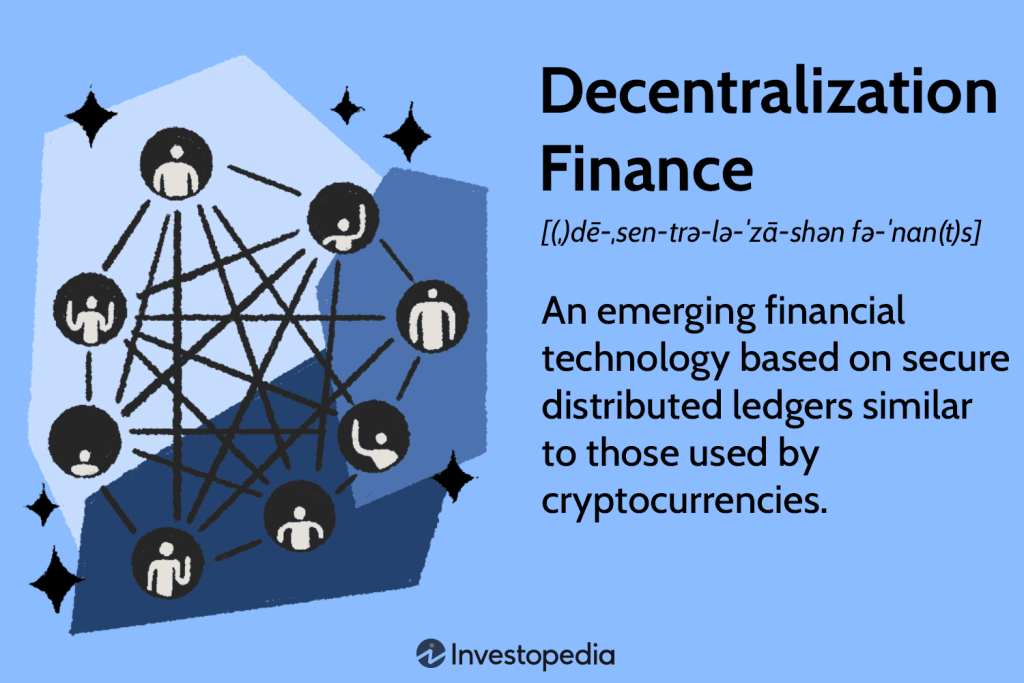
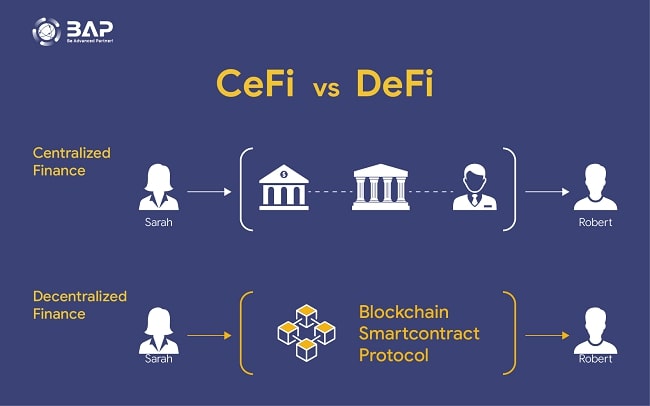
Some of the key benefits of DeFi include:
- Security: DeFi applications are built on blockchain technology, which is known for its security and transparency.
- Accessibility: DeFi applications are accessible to anyone with an internet connection, regardless of their location or financial background.
- Decentralization: DeFi operates without intermediaries, which means that users have greater control over their assets and financial transactions.
- Interoperability: DeFi applications can interact with each other, enabling the creation of complex financial products and services.
- Automation: DeFi applications are automated, enabling fast and efficient financial transactions.
In summary, DeFi represents a new financial system that is built on blockchain technology and operates without intermediaries, offering users a range of financial services in a secure, accessible, and decentralized manner.
